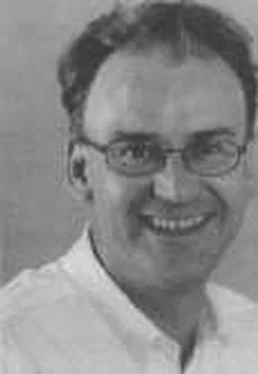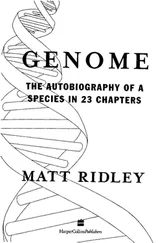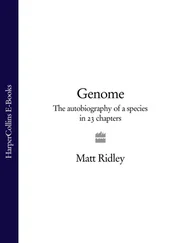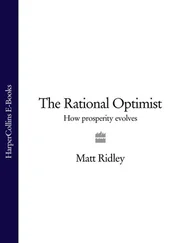The Queen - Matt Ridley
Здесь есть возможность читать онлайн «The Queen - Matt Ridley» весь текст электронной книги совершенно бесплатно (целиком полную версию без сокращений). В некоторых случаях можно слушать аудио, скачать через торрент в формате fb2 и присутствует краткое содержание. Жанр: Старинная литература, на английском языке. Описание произведения, (предисловие) а так же отзывы посетителей доступны на портале библиотеки ЛибКат.
- Название:Matt Ridley
- Автор:
- Жанр:
- Год:неизвестен
- ISBN:нет данных
- Рейтинг книги:4 / 5. Голосов: 1
-
Избранное:Добавить в избранное
- Отзывы:
-
Ваша оценка:
- 80
- 1
- 2
- 3
- 4
- 5
Matt Ridley: краткое содержание, описание и аннотация
Предлагаем к чтению аннотацию, описание, краткое содержание или предисловие (зависит от того, что написал сам автор книги «Matt Ridley»). Если вы не нашли необходимую информацию о книге — напишите в комментариях, мы постараемся отыскать её.
Matt Ridley — читать онлайн бесплатно полную книгу (весь текст) целиком
Ниже представлен текст книги, разбитый по страницам. Система сохранения места последней прочитанной страницы, позволяет с удобством читать онлайн бесплатно книгу «Matt Ridley», без необходимости каждый раз заново искать на чём Вы остановились. Поставьте закладку, и сможете в любой момент перейти на страницу, на которой закончили чтение.
Интервал:
Закладка:
The heads of chimps, gorillas, and orangutans stayed roughly the same. So did the other descendant of Lucy 's species, the so-called robust australopithecines, or nutcracker people, who became specialist plant eaters.
What caused the sudden and spectacular expansion of that one ape 's head, from which so much else flowed? Why did it happen to one ape and not another? What can account for the astonishing speed, and the accelerating speed of the change? These questions may seem to have nothing to do with the subject of this book, but the answer may lie with sex. If new theories are right, the evolution of man 's big head was the result of a Red Queen sexual contest between individuals of the same gender.
On one level the evolution of big-headedness in man 's ancestors is easily explained. Those that had big heads had more young than those that did not. The young, inheriting the big heads, therefore had bigger heads than their parents ' generation. This process, moving in fits and starts, faster in some:places than in others, eventually caused the trebling of the brain capacity of man.
It could have happened no other way. But the intriguing thing is what made the big-brained people likely to have more children than the small-brained ones. After all, as a diverse array of observers from Charles Darwin to Lee Kwan Yew, the former prime minister of Singapore, have noted with regret, clever people are not noticeably more prolific breeders than stupid people.
A time-traveling Martian could go back and examine the three consecutive descendants of Australopithecus, Homo habilis, Homo
erectus, and so-called archaic Homo sapiens. He would find a steady progression in brain size—that much we know from the fossils—
and he would be able to tell us what the clever ones were using
::: 312:::
The Red Quern
their bigger brains for. We can do something similar today simply by looking at what modern human beings use their brains for: The trouble is that every aspect of human intelligence you consider as uniquely human applies to the other apes as well: A vast chunk of our brains is used for visual perception; but it is hardly plausible that Lucy suddenly needed better visual perception than her distant cousins: Memory, hearing, smell, face recognition, self-awareness, manual dexterity—they all have more space in the human than in the chimp brain, yet it is hard to understand why any of them was more likely to cause Lucy to have more children than it was to cause a chimp to have more. We need some qualitative leap from ape to man, some difference of kind rather than degree that transformed the human mind in ways that for the first time made the biggest possible brain the best possible brain: There was a time when it was easy to define what made humans different from other animals: Humans had learning; animals had instincts: Humans used tools; animals did not: Humans had language; animals did not. Humans had consciousness; animals did not: Humans had culture; animals did not: Humans had self-awareness; animals did not. Gradually these differences have been blurred or shown to be differences in degree rather than in kind: Snails learn: Finches use tools. Dolphins use language: Dogs are conscious: Orangutans recognize themselves in mirrors: Japanese macaques pass on cultural tricks: Elephants mourn their dead: This is not to say that all animals are as good as humans at each of these tasks, but remember that humans were once no better than them and yet they came under sudden pressure to get better and better, while animals did not. A well-trained humanist is already scoffing at such sophistry: Only people can make tools as well as use them. Only people can use grammar as well as vocabulary: Only people can empathize as well as feel emotion: But this sounds uncannily like special pleading. I find the instinctive arrogance of the human sciences thoroughly unconvincing because so many of its bastions have already fallen to the champions of animals: Beaten back from position after position, the humanists simply pretend they never intended to hold them in the first place and THE INTELLECTUAL CHESS GAME
::: 3I3 :::
redefine the retreat as tactical: Almost all discussions of consciousness assume a priori that it is a uniquely human feature when it is patently obvious to anybody who has ever kept a dog that the average dog can dream, feel sad or glad, and recognize individual people; to call it an unconscious automaton is perverse.
THE MYTH OF LEARNING
At this point the humanist usually retreats to his strongest bastion: learning: The human, he says, is uniquely flexible in his behavior, adapting to skyscrapers, deserts, coal mines, and tundra with equal ease: That is because he learns far more than animals and relies on instincts far less. Learning how the world is rather than simply arriv-ing in it with a fully formed program for survival is a superior strategy, but it demands a bigger brain: Therefore, the bigger brain of the human reflects a shift away from instinct and toward learning.
Like just about everybody else who has ever thought about these things, I found such logic impeccable until I read a chapter in a book called The Adapted Mind by Leda Cosmides and John Tooby of the University of California at Santa Barbara.' They set out to challenge the conventional wisdom, which has dominated psychology and most other social sciences for many decades, that instinct and learning are opposite ends of a spectrum, that an animal that relies on instincts does not rely on learning and vice versa. This simply is not so. Learning implies plasticity, whereas instinct implies preparedness. So, for example, in learning the vocabulary of her native language, a child is almost infinitely plastic. She can learn that the word for a cow is vache or cow or any other word. And likewise in knowing that she must blink or duck when a ball approaches her face at speed, a child would not need to have plasticity at all. To have to learn such a reflex would be painful. So the blink reflex is prepared, and the vocabulary store in her brain is plastic:
But she did not learn that she needed a vocabulary store.
She was born with it and with an acute curiosity to learn the names
::: 314 :::
The Red Quern
of things. More than that, when she learned the word cup, she knew without being told that it was a general name for any whole cup, not its contents or its handle and not the specific cup she saw first, but the whole class of objects called cups. Without these two innate instincts, the " whole object assumption " and the "taxonom-ic assumption, " language would be a lot harder to learn. Children would often find themselves in the position of the apocryphal explorer who points at a never-before-seen animal and says to his local guide, "What' s that? " The guide replies, "Kangaroo, " which means in his language "I don't know. "
In other words, it is hard to conceive how people can learn (be plastic) without sharing assumptions (being prepared). The old idea that plasticity and preparedness were opposites is plainly wrong: The psychologist William James argued a century ago that man had both more learning capacity and more instincts, rather than more learning and fewer instincts: He was ridiculed for this, but he was right.
Return to the example of language: The more scientists study language, the more they realize that hugely important aspects of it, such as grammar and the desire to speak in the first place, are not learned by imitation at all. Children simply develop language.
Now this might seem crazy because a child reared in isolation would not, as James I of England hoped he might, simply grow up to speak Hebrew. How could he? Children must learn the vocabulary and the particular rules of inflection and syntax specific to their language. True, but almost all linguists now agree with Noam Chomsky that there is a " deep structure " that is universal to all languages and that is programmed into the brain rather than learned: Thus, the reason all grammars conform to a similar deep structure (for example, they use either word order or inflection to signify whether a noun is object or subject) is that all brains have the same "language organ."
Читать дальшеИнтервал:
Закладка:
Похожие книги на «Matt Ridley»
Представляем Вашему вниманию похожие книги на «Matt Ridley» списком для выбора. Мы отобрали схожую по названию и смыслу литературу в надежде предоставить читателям больше вариантов отыскать новые, интересные, ещё непрочитанные произведения.
Обсуждение, отзывы о книге «Matt Ridley» и просто собственные мнения читателей. Оставьте ваши комментарии, напишите, что Вы думаете о произведении, его смысле или главных героях. Укажите что конкретно понравилось, а что нет, и почему Вы так считаете.












